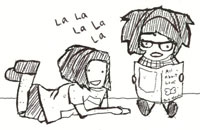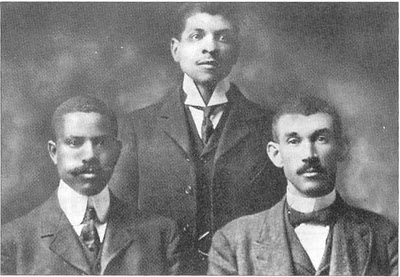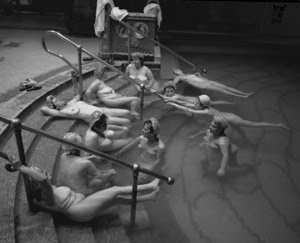Date: Monday, 16 November, 2009
Time: 4:00 PM
Location: Duke Women’s Center Lower Lounge
Contact Information: Kelly Wooten, 919-660-5967 or kelly.wooten(at)duke.edu
 You know those issues of Greenzine you have stacked on your bookshelf? Now you’ll finally have your chance to meet writer and illustrator Cristy Road as she visits Duke’s Women’s Center for a reading and discussion.
You know those issues of Greenzine you have stacked on your bookshelf? Now you’ll finally have your chance to meet writer and illustrator Cristy Road as she visits Duke’s Women’s Center for a reading and discussion.
Road, a Cuban-American from Miami, Florida, has been illustrating ideas, people, and places ever since she learned how to hold a crayon. Blending the inevitable existence of social principles, cultural identity, sexual identity, mental inadequacies, and dirty thoughts, she testifies to the beauty of the imperfect. Today, Road has moved from zines to illustrated novels, although her visual diagram of lifestyles and beliefs remain in tune with the zine’s portrayal of living honestly and unconventionally.
Stop by the Sallie Bingham Center for Women’s History and Culture during reading room hours to see issue #14 of Greenzine, one of some 4000 zines (and counting!) preserved in the center’s zine collection.
(Artwork courtesy of Cristy Road: “Hope Beyond Despair” from Greenzine 14, 2004)










